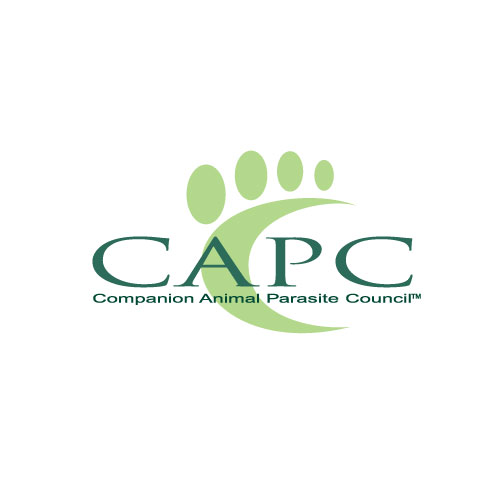Category: CAPC Guidelines and Resources
Resource Types
Resource Types
CAPC Guidelines
Controlling Internal and External Parasites in U.S. Dogs and Cats
Primary Recommendations
Parasite Testing and Protection Guided by Veterinarians
- Conduct preventive physical examinations at least every 6 to 12 months.
- Conduct annual heartworm testing in dogs; test cats prior to placing on heartworm preventive and thereafter as indicated.
- Test annually for tick-transmitted pathogens, especially in regions where pathogens are endemic or emerging.
- Conduct fecal examinations at least four times during the first year of life, and at least two times per year in adults, depending on patient health and lifestyle factors.
- Prescribe control programs to local parasite prevalence and individual pet lifestyle factors.
- Adapt prevention recommendations to address emerging parasite threats.
- In areas where Lyme disease is considered endemic or emerging, vaccinate dogs against Borrelia burgdorferi.
Every Pet, All Year Long
- Administer year-round broad-spectrum parasite control with efficacy against heartworm, intestinal parasites, fleas, and ticks. Control of parasites with zoonotic potential is essential.
- Administer anthelmintic treatment to puppies and kittens starting at 2 weeks of age and repeating every 2 weeks until regular broad-spectrum parasite control begins.
- Maintain pregnant and nursing dams on broad-spectrum control products.
Healthy Lifestyle, Healthy Pets, Healthy People
- Feed pets commercial or cooked food (not raw diets) and provide fresh water.
- Cover sandboxes when not in use, and protect garden areas from fecal contamination.
- Pick up feces immediately when walking a dog in a public area and from the yard on a daily basis.
- To prevent roaming and limit predation, keep dogs on a leash or behind a fence and keep cats indoors.
- Permanently identify dogs and cats through microchip implantation.
- Do not handle animal feces or urine with bare hands, and wash hands immediately after incidental contact. This recommendation is particularly important for children and individuals at increased risk.
- Properly dispose of animal waste according to local municipal regulations.
- Spay or neuter all pets not intended for breeding.
If Optimal Year-Round Parasite Protection Products Are Not Used
- For puppies and kittens, administer anthelmintics starting 2 weeks of age, repeating every 2 weeks until 2 months or age, monthly until 6 months of age, and quarterly thereafter.
- Treat all adult pets four times a year with a broad-spectrum anthelmintic with efficacy against intestinal parasites.
- Conduct fecal examinations at least four times a year, depending on pet health and lifestyle factors.
- Annual testing is encouraged for heartworm and other vector-borne infections in dogs, as well as routine, year-round use of heartworm preventive, monthly intestinal parasite control, and flea and tick control in all pets.

Since 2003 the Companion Animal Parasite Council has been providing guidelines for veterinary professionals and pet owners.